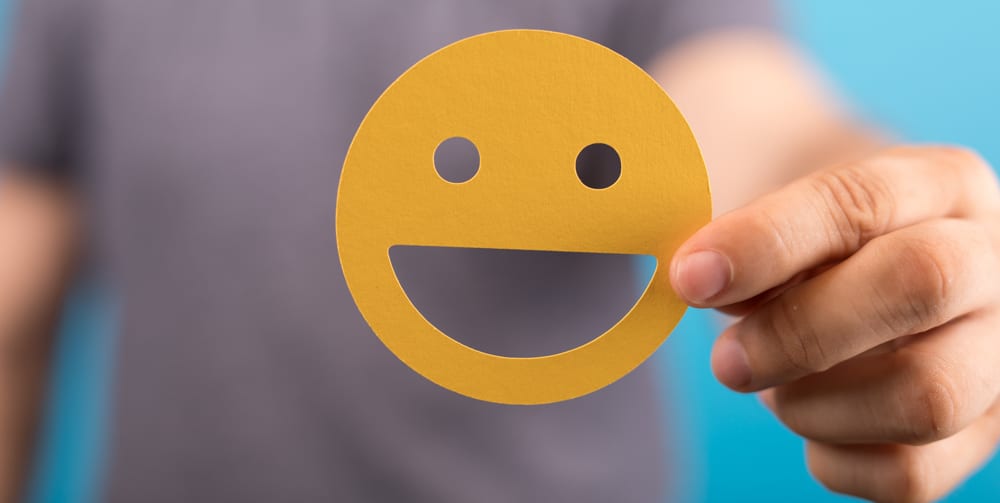Experiencing change can be extremely difficult. Change is inevitable and often comes without any warning, protocol, or guidebook. No matter what changes an individual experiences, they are bound to hit an occasional road bump. This is true for those who are going through the changes that come with addiction recovery. While it may be hard to keep a positive mindset during this transition, positivity in recovery is of utmost importance.
Remaining Positive When Changes are Present
As a person experiences change of any form, there are typically expected growing pains to accompany it and that is completely normal. For example, let’s say you just landed a pretty amazing promotion at work, which was anticipated and well deserved. Regardless of how positive the promotion at work change is, the adjustment period will probably be difficult.
When there is a difficulty, it doesn’t mean run but instead embrace! To properly settle into the new job position, you will have to set aside an adequate amount of time to learn everything. Don’t fret, because eventually, you will master this new role just like you mastered the last one.
The main thing to remember is it will take time to adjust to any change. This is similar to conquering drug addiction recovery. You are setting yourself up to embrace positivity in recovery, it is a huge step in the direction of self-improvement. Drug addiction recovery is rarely easy, seeing as you are completely learning a new way of living. Deciding to take a step towards sobriety is a huge step in the right direction, and staying positive will certainly help!
There is great power in positivity and it has been scientifically studied for numerous years. The extensive effects of positivity have been frequently proven and it continues to be researched.
10 Tips for Staying Positive in Recovery
1. Identify and Avoid Your Triggers
It’s essential that you do your best to avoid personal relapse triggers and don’t put yourself into situations that will promote negativity or make you uncomfortable. Creating a routine will certainly be ideal and conducive to your overall recovery. For example, it would be beneficial to stop spending time with individuals that you used to engage in drug and alcohol use. Developing a healthy and new routine is a great step to positivity in recovery.
2. Search for a Stable Support Group
In the majority of cases, discovering a consistent support group will look a lot like an IOP group. Here at Lifetime Recovery, our intensive outpatient program in South Jersey is ideal for individuals in need of a high level of treatment and support but don’t need to live at our treatment facility. Our overall team’s mission is to discover successful solutions to assist our clients in conquering drug addiction recovery.
Many IOPs offer 12-step programs. These programs are considered a superior option for individuals to attend after they have left and completed their IOP. The groups provide clients with a great sense of structure so they are more equipped to progress in drug addiction recovery.
3. Build an Extensive and Solid Group
Beyond your IOP or aftercare program, it will be ideal to develop a strong team of supportive individuals that you can always count on to be by your side. This support group can include supportive family members, a case manager or counselor, close sober friends, and a therapist. It’s a great idea to ensure that you have a nice amount of close sober friends that you bring along to events that you don’t feel confident enough to navigate on your own such as:
- Social gatherings
- Holiday parties
- Gatherings
4. Find an Effective Approach to Manage Cravings
Cravings are considered to be an expected and normal part of early drug addiction recovery. Instead of beating up on yourself whenever you undergo a craving, think of healthy ways to conquer it! Depending on your requirements and needs, this could look like:
- Calling a sober, like-minded individual and talking it out
- Attending a 12-Step Meeting and sharing how you feel
- Going on a lengthy jog
5. Discover a Hobby You Enjoy Doing and Participate in it Often
One of the greatest ways to maintain positivity in recovery is by fulfilling your day by doing something that you love and enjoy doing. This hobby will make you feel not only fulfilled but good about yourself too! When you’re attending drug addiction recovery, there will be plenty of opportunities to engage in enjoyable activities.
Instead of sleeping in until 2:00 pm, get out of bed and go paddle boarding, surfing, or learning how to salsa! Of course, it’ll be more attainable to enjoy outside activities in the summertime in NJ. The saying is true, “The world is your oyster”. Go and enjoy yourself!
6. Discover More Ways to Relax. Stress and Tension Lead to Negative Thinking.
If you start to feel yourself becoming overwhelmed, find ways to relax. Remember, self-care is not an act of selfishness. It is undeniably necessary. When an individual is relaxed, they are therefore more inclined to engage in positive thinking.
This could look like engaging in some of the following activities:
- Embracing meditation and breathing exercises
- Taking a bubble bath or yoga class
- Listening to your favorite music
- Reading a book
7. Take Care of Your Mental and Physical Health
This could look like various methods such as:
- Getting an adequate amount of sleep each night
- Eating three balanced meals a day
- Exercising when you’re able to
Remember that exercise can have a positive effect on one’s mental and physical health. It can help to regulate the way you think and behave. It can also give you a healthy habit to focus on, helping you to avoid relapse. Exercising regularly can also help to promote self-confidence and self-esteem.
If you happen to be experiencing any physical pain, make sure to inform one of our trained licensed professionals at our treatment center. A common part of early drug addiction recovery is Post-Acute Withdrawal Syndrome (PAWS). When the symptoms of PAWS aren’t being properly treated, it can compromise a patient’s overall mental well-being. Make sure to speak to one of our addiction healthcare specialists to learn how to manage symptoms.
8. Volunteer and Help Those Who in Need
When an individual engages in volunteering and/or giving to charity, they begin to feel better about themselves and their situations while building up strong self-esteem. As the legendary Mahatma Gandhi stated, “The best way to find yourself is to lose yourself in the service of others”. You can volunteer at a local soup kitchen, and various other organizations. It’s life-changing to be of service whenever you can. Being a part of something that is bigger than yourself can help you maintain a positive outlook on life.
9. Decide How You Will Acknowledge Others When They Question Your Recovery
Whenever a person is set to initiate a positive change in their life, there will always be naysayers present. So, you might expect people to question your decision or choice you have made that will better your future. Sometimes individuals are accustomed to the person you used to be. It’s often because they are more comfortable and familiar with how you were before.
Having an idea of how you will respond to questions such as, “Are you sure you can’t have one hit?” or “Why don’t you drink anymore?” would be extremely beneficial. When you can respond effectively, it will be able to put your mind at ease. Remember, “Preparedness breeds positivity.”
10. Write Down About 5-10 Things You Are Grateful for When You Feel Down
Make a comprehensive gratitude list that will unquestioningly assist in pulling you out of a slump. Be sure to make it a routine of writing down your gratitude list with your friends. You may even want to find someone to share your gratitude list with.
Research on Positivity
One of the studies that researched positivity was published by Johns Hopkins Medicine and it was titled ‘The Power of Positive Thinking’ and it further confirmed that a change in a person’s attitude can have dramatic results. This same study discovered that individuals who had heart disease within their family unit were one-third less likely to develop heart disease themselves if they were able to maintain a positive outlook. In the study, it was noted numerous ways to boost a person’s mood regardless of what they might be going through such as:
- Building up resiliency, which means learning to adjust to unfortunate circumstances and instead of practicing acceptance over it, accepting that a change is an inevitable and mandatory part of life.
- Practicing reframing means changing a negative circumstance into a positive one, and focusing on what you have to be grateful for.
- Smiling more often.
There was also a Scientific American study that thoroughly explored how mindfulness can impact positive thinking. Therefore, positive thinking can impact a person’s overall quality of life. At the beginning of the study, mindfulness and the association of this particular practice are explained.
Then it goes on to read, “Mindfulness is the practice of being aware of thoughts and feelings without judging them good or bad. Mental-health treatments that focus on this method include mindfulness-based stress reduction—an 8-week group-based program that includes yoga and daily meditation—and mindfulness-based cognitive therapy.”
Here at Lifetime Recovery, we ensure to utilize dialectical behavior therapy (DBT) during some of our cognitive behavioral therapy (CBT) sessions. DBT is a type of therapy that can address behaviors and thoughts while also integrating useful strategies such as mindfulness and emotional regulation.
Engage in Positivity in Recovery at Lifetime Recovery
Early drug addiction recovery can be difficult to navigate, but it’s not impossible! Positivity in recovery is attainable to reach by undergoing treatment, engaging in therapy, and taking advantage of these tips. We are here for you and we’ll make certain you have an individualized program for drug addiction recovery. Believe that you’ve got this and you’re capable of accomplishing amazing things!



